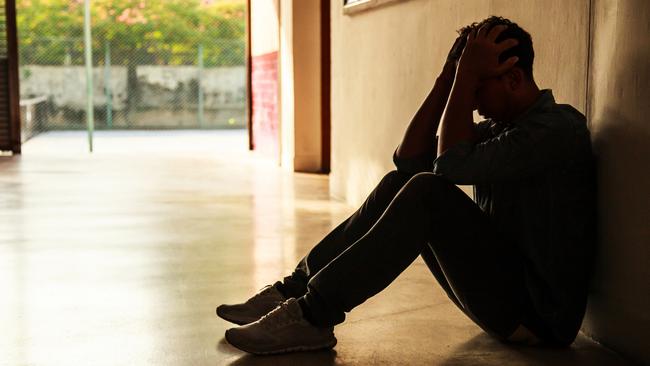Mental Health Australia calls on politicians to address mental health crisis
Mental Health Australia is calling on both sides of politics to prioritise mental health, as polling reveals nearly two-thirds of voters back parties that raise funding.

The peak body for mental health is calling on both sides of politics to prioritise mental health ahead of the federal election, as new polling reveals nearly two-thirds of voters are more likely to back parties committed to increasing funding for the area.
Mental Health Australia is pushing for increased investment in mental health prevention and treatment, saying the financial cost that psychological conditions placed on the health system were not being met under the current funding arrangement.
Though mental health accounts for 15 per cent of the health burden, only 7 per cent of funding is spent on those conditions.
Polling by Redbridge, commissioned by Mental Health Australia, found that 81 per cent of voters are concerned about mental health and 75 per cent believe the government needs to do more to address the issue.
Mental Health Australia chief executive Carolyn Nikoloski said the vast majority of Australians supported greater investment in tackling mental health, with only one in five believing the current level of services was adequate.
“Our polling data shows mental health is clearly a concern for the community, and it’s a vote winning platform,” Ms Nikoloski said.
“So we call in on all parties and political leaders to commit to improving mental health in their election platforms, and prioritising mental health in the next term of government.
“The community expects government to act on mental health.”
Mental Health Australia is calling for an increase in “upstream” investment to bolster funding for mental health promotion, prevention and early intervention, and a progressive increase in spending to ensure that mental health expenditure represents 10 to 15 per cent of the health budget.
The peak body is also pushing for a boost to funding, subsidies and incentives to stem the increase in out-of-pocket costs for users, a review of current funding models and action to address the structural flaws that have created a “missing middle” in the system.
“There are three key things that we’d like to see government commit to,” Ms Nikoloski said.
“Firstly, it’s overhauling the system foundations to make sure that we have a world-class system of mental healthcare and support.
“Secondly, it’s about matching funding to the scale of the problem and the community’s expectations. And the third key ask is about embedding an equitable, inclusive and human rights-based approach to care and support.
“We know that this isn’t happening at the moment, and to improve mental health we absolutely need to listen and respond to the needs and expertise of people with lived experience and their family, carers and supporters.”
The failure of the health system to help patients afflicted by the most severe psychiatric conditions has been highlighted by The Australian’s series on mental health, Cast Adrift, which has revealed the marginalisation these patients face.
Mental Health Australia is also advocating for a collaborative approach between state, territory and federal governments, the introduction of mental health priorities in settings such as schools and workplaces, and implementing the National Mental Health Research Strategy.
In its vision statement for a mentally healthy Australia, it also recommended that lived experience be embedded in the system and the scope and purpose of the National Mental Health and Suicide Prevention Agreement be expanded to provide mental health services which bridge general practice and the hospital system.
The polling also found 63 per cent of voters were more likely to back parties that were committed to increasing mental health funding to improve access to services; some 57 per cent of respondents reported that the cost-of-living crisis had negatively impacted their mental health.



To join the conversation, please log in. Don't have an account? Register
Join the conversation, you are commenting as Logout